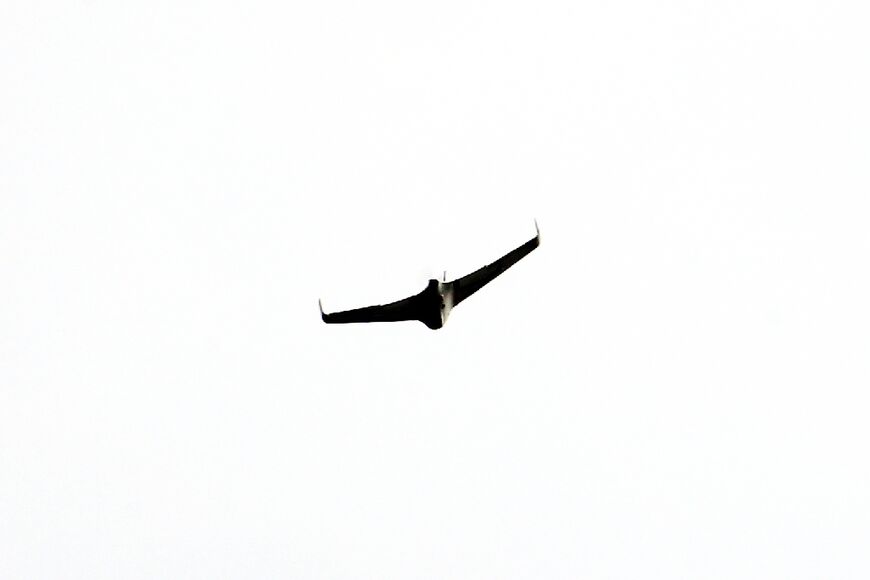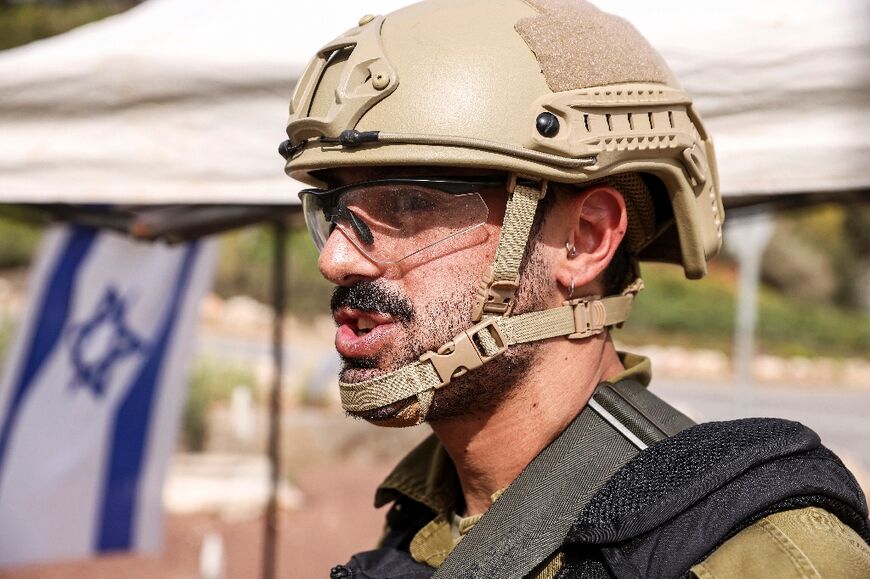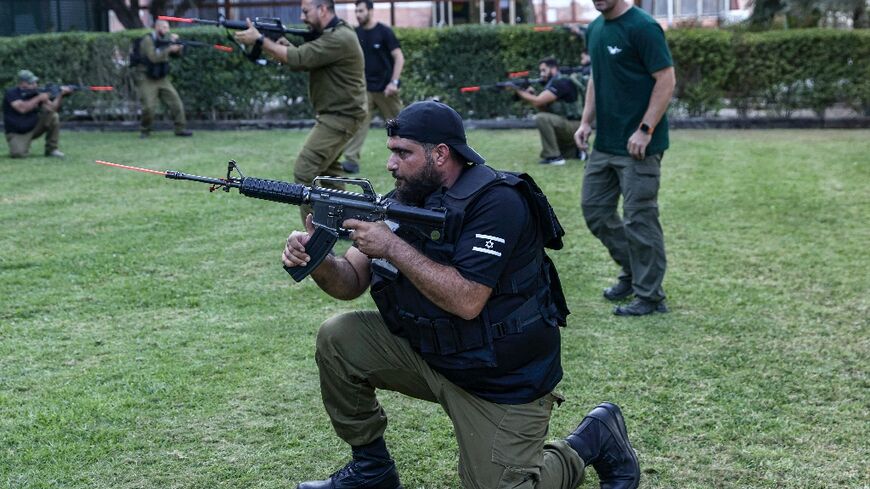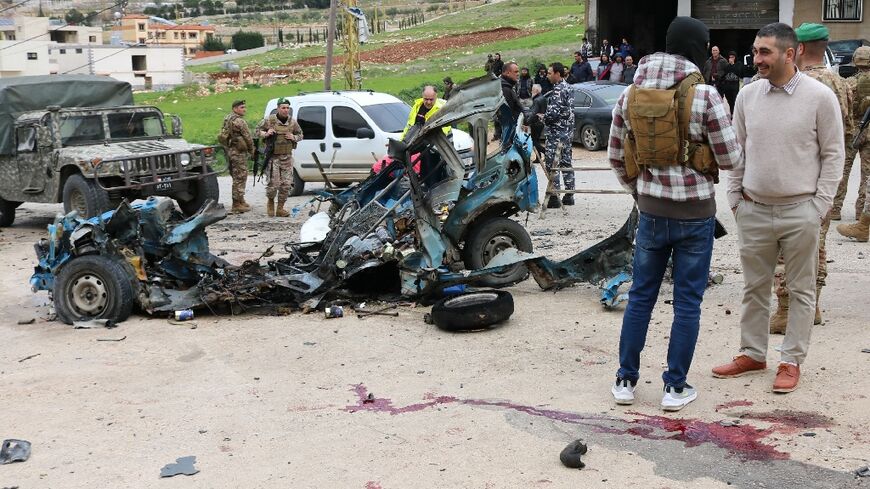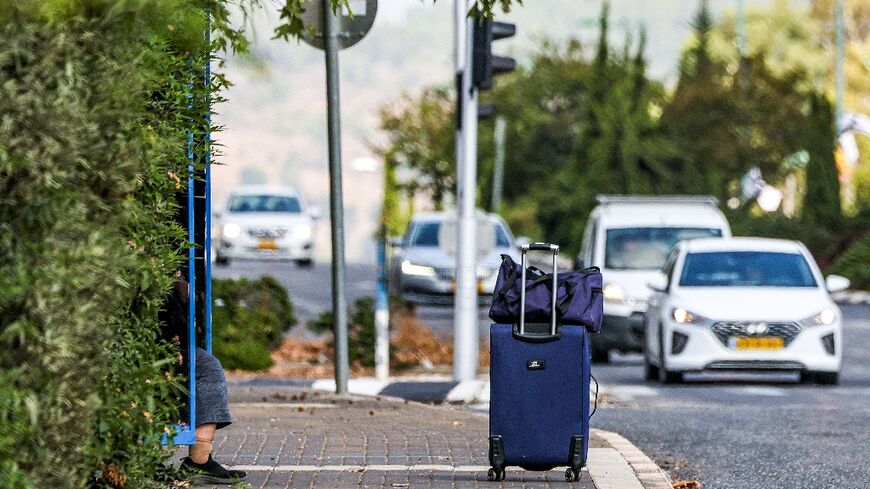With Israeli soldiers on the northern front
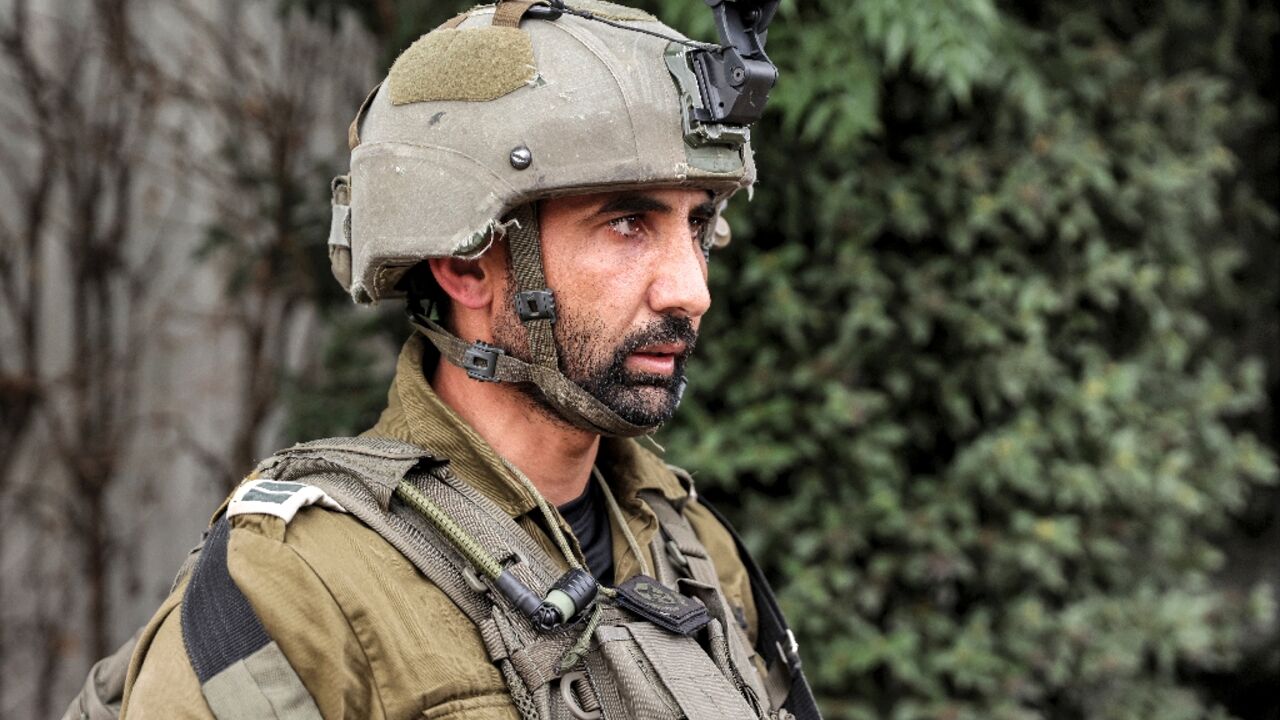
A drone from Lebanon appears on the other side of the hill from the Israeli soldiers. The sighting is reported by radio, but its buzz has already alerted the troops.
Two of the camouflaged soldiers on the ground train their M-16s skywards.
"This is how it is here. We go from 0 to 100 in a few seconds," says Kamal Saad, 33, who commands the Israeli army's 299th Battalion operating in the north.
Cross-border exchanges of fire have intensified since Hamas's October 7 attack on Israel, mostly between Lebanese armed group Hezbollah, an ally of Hamas, and Israeli forces.
Israeli tanks aim at the buzzing unmanned aircraft, alongside other weaponry, the details of which the army has asked AFP not to disclose.
The action lasts an hour, during which the whole battalion is ordered to take cover.
The military position, which AFP has been authorised to visit, serves as a rear base for the battalion.
It is famous throughout the country for its infantry being 70 percent Druze, an Arabic-speaking minority in Israel who are known for being fierce fighters.
"We grew up here, it's our home. We know every stone," says Saad.
"Our mission is to protect the security forces operating here and the remaining civilians," adds the commander whose brother Alim was killed by Hezbollah on October 9 in the area.
- Civilians evacuated -
On Saturday, with the unit on high alert, some of Saad's men in the battalion watched Hezbollah leader Hassan Nasrallah speak in only his second televised address since the Hamas-Israel war began.
"The threat can come from anywhere -- sea, sky and land," says Saad.
It is not like during Israel's 2006 war with Hezbollah, when salvoes of rockets were fired from Lebanon. Now the fire is sporadic, but it does take place every day.
And for the first time in Israel's 75-year history, all civilians in areas along the border have been evacuated.
At another section of the border, three soldiers were wounded in an attack on a position at Margaliot, near Kiryat Shmona, on Friday.
On Saturday, the area was targeted again, with AFP journalists reporting plumes of smoke over the key Israeli position.
Nearby, the residents of Kfar Giladi kibbutz say they are the last line of defence against Hezbollah.
Tom Cohen, 28, returned from Australia to where he had grown up to join the kibbutz's self-defence group.
"People were afraid that Hezbollah was just going to move in... as we have seen in the south," he says, referring to the Hamas attacks of October 7.
- Mission: deterrence -
"Now the big threat is the rockets coming from above... and attack drones."
He says he hopes that once Lebanon is rid of Hezbollah the border will open and he can discover the country that he grew up facing.
Israeli Prime Minister Benjamin Netanyahu has said he will only engage in a war with Hezbollah if forces him to.
On Friday, in a visit to troops near Gaza, he said the mission of those forces deployed in northern Israel could be summed up in one word: deterrence.
All of the Israeli soldiers AFP has spoken to fear a massive confrontation.
"Hezbollah from the second day is trying to get into this war," Cohen says.
"Rockets on your bases, on people, on civilians -- it's declaring war," he adds, pointing to the memorial commemorating the death of 12 soldiers in 2006, killed by a rocket at the kibbutz gate.
The bloody Gaza war erupted after Hamas fighters smashed through the militarised border with Israel on October 7, killing around 1,200 people, mostly civilians, and taking about 240 people hostage, according to Israeli figures.
Israel's relentless campaign in response has killed more than 11,100 people, also mostly civilians and including thousands of children, according to the health ministry in Hamas-run Gaza.
In the north since October 7, more than 90 people have been killed on the Lebanese side, and eight inside Israel, including six soldiers.
Among the dead in Lebanon are at least 70 Hezbollah fighters and 11 civilians, according to an AFP count.


